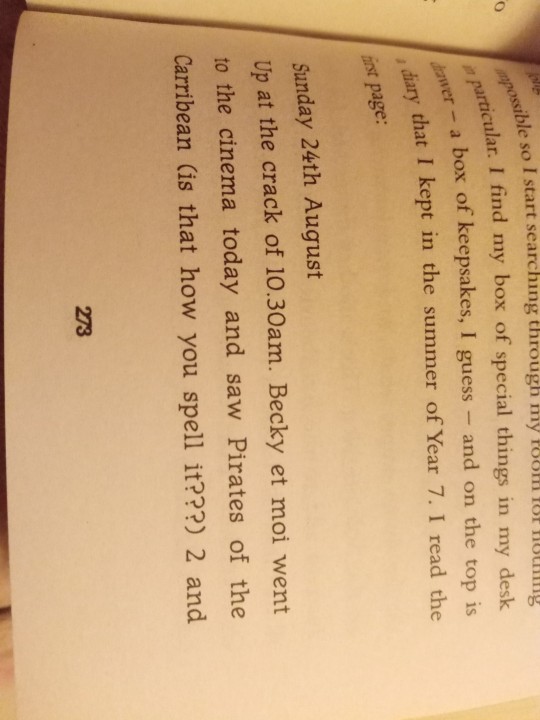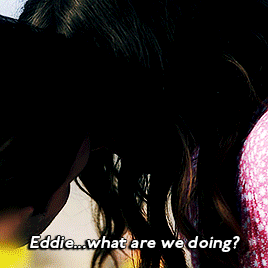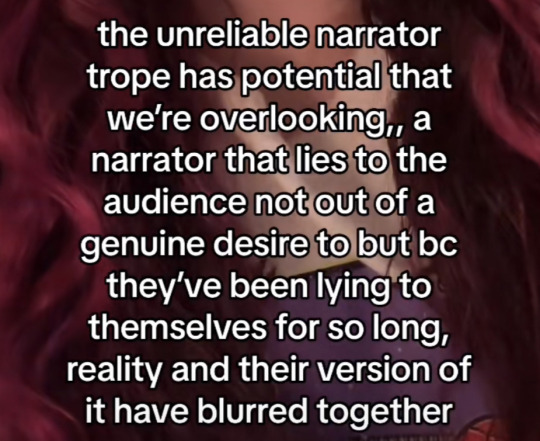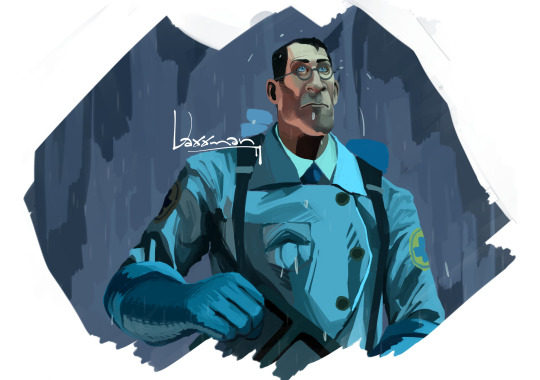#unreliable narration
Text
The roller rink fight is really just a bunch of details pointing out Will's unreliable narration.
"You basically sabotaged the whole day", Mike seemed happy to us onscreen before. He wasn't.
"El has like a book of letters from you" and none of them are signed 'Love'. That isn't as much a threat/romantic as you assume it is.
143 notes
·
View notes
Text
Unreliable Narration
Hello, I’m titanium-knave, and I will be doing a meta today on narration. The most common perspective style in fiction is second person (“You do this” “You do that”). It is featured in works such as F. Scott Fitzgerald’s book The Great Gatsby.
Ah, but. I should tell you. Everything I have said so far has been a lie.
Maybe you trusted me. Maybe you had prior knowledge that contradicted what I just said. Maybe you weren’t paying attention or even thinking about the accuracy of my statement.
Either way, I just told you I was lying, so how can you be sure anything I say going forward is the truth?
I am cobalt-knave, and today, I will be telling you about unreliable narrators in fiction. An unreliable narrator is any narrator that is untrustworthy, most often seen in first person perspective. There are many benefits to using unreliable narration, but the foremost is that you, as the author, can control the experience of the reader by embracing the world and characters of the story. For some examples of this, I will discuss how it can be used to match a reader’s experience with the main character, how it can be used to establish in-world foundations for mistakes on the author’s end, and how it can be used to manipulate your readers while drawing them in further.
Everyone’s experiences are unique. Truly walking in someone else’s shoes is an impossibility, and yet that is what fiction strives towards. By using unreliable narration and setting aside objective reality, the door is opened into the character’s perspective, as skewed as it may be.
An example is Challenger Deep by Neal Shusterman whose main character Caden has schizophrenia. Unreality and skewed reality is essential to understanding his perspective. One of my favorite moments in the book is this:
“I think about the bartenders, and wonder what diabolical things they’ll be putting into my cocktail. Spleen of chameleon. Testicle of tarantula. Eventually I realize that I’m sitting there with a fork in the air, and food drooling out of the side of my mouth. I feel like I could have been like that for hours, but probably not, because Carlyle would let it go on only for a few seconds. […]
Carlyle takes the spoon out of my hand and sets it down. ‘Maybe you’ll eat more later,’ he says, realizing this meal isn’t happening.
‘Maybe I’ll eat more later.’ It is not lost on me that the fork has magically transformed into a spoon.”
I love that moment, and I never remember it until it comes. We do not know if it is a spoon or a fork. Caden does not know this. The objective reality does not matter. What matters is the lack of objective reality, which is the driving force of the book, shifting in and out of “the real world” as Caden’s viewpoint shifts. As Caden’s mind wanders, so too does the prose. The use of unreliable narration distills down what makes the main character’s viewpoint true to them, which is their experience of the world, not the world itself and lets the reader experience It too.
But it’s not just the main character who can make mistakes. Inconsistencies, continuity errors, mistakes in general on the author’s part can be leaned into and worked into the story through unreliable narration. Your mistakes are your character’s mistakes.
An example of this is in the audio drama The Magnus Archives written by Jonathan Sims. The format involves an archivist recording people’s personal accounts and any follow up that was done on them. It’s horror, and the recording process is something that physically affects the archivist, making him feel watched and afraid, which he is determined to deny. Several mistakes on Sims’ part were pointed out early on, and, rather than retcon or ignore the complaints, he worked them into the show.
“TIM. So, in case 8163103, it isn’t clear if Albrecht’s wife is called ‘Clara’ or ‘Carla,’ ‘cause you keep switching back and forth…
ARCHIVIST. Well, I’m sorry if I found it hard to read a 200-year old letter, written in cursive by a native German speaker. Who complained about that one?”
A lot going on here. First, this brings the audience in rather than pushing them away. The audience members who pointed out the issue are brought up as students who complained. This also introduces Tim as a character, someone who will notice and point out errors. It develops the Archivist as a character.
It also sets the precedent that any errors are on the archivist. He will not always be consistent; he’s just a person who’s stubborn and afraid and is going to mis-speak and get very defensive about it.
This is the scene that establishes on no uncertain terms that the main character is not a trustworthy source of objective information, something that is very key to his character. And this comes from leaning in. A mistake can become a pivotal character choice if you lean in. It also handily passes your mistakes onto a fiction character.
Mistakes are not intentional. Subjective experience isn’t intentional. But you know what is? Lying. A third section of unreliable narrators includes the liars and manipulators. Unreliable narration can be used on the part of both author and character to manipulate readers while drawing them in further.
An example of this I love is from the podcast WOE.BEGONE. It is fictional but mostly takes the form of a podcast in-universe, meaning that the main character is recording and publishing what we hear. Here is when the main character, Mike Walters, explains how exactly he has been using that to his advantage and throws into question everything he has told us so far.
“I was sure that CANNONBALL used the podcast to figure out what I was thinking and doing, so I started using it as a way to lie directly to his face. I know that CANNONBALL takes me for a chump who will just spill every little bit of his guts out for podcast listens, so it was pretty easy to plant lies among the truths in the story (remember that “limited hangout” thing we talked about last episode?). I mean, this is a guy who seemed to honestly believe that my name was Mike Walters.”
You may have noticed that this is the same technique I used at the start of this meta. Hooked you, didn’t it? Scenes like this, the reveal of the lie without exposing the truth, are hooks. Questions are left unanswered. In WOE.BEGONE, we never learn Mike’s real name. We simply know it is not Mike Walters. This adds a two major elements: mystery – the reader stays in hopes of getting answers – and the train wreck effect – the readers stays to see what this manipulative, lying main character is going to do next. They are unpredictable, and unpredictability can be very fun in fiction.
Fundamentally, unreliable narration will always be truer to a first person perspective because all people experience the world differently. If I asked three of you to repeat my speech without offering you my script, I guarantee there would be three different speeches given and none of them my own. Because, everyone notices and remembers different things. What jumps out to one might blend in to another and even that relies on memory and senses and very subjective experience. We are all unreliable narrators. So, using that unintentionally in writing, leaning in, can open up so much opportunity. You control the narrative. Nobody can contradict what you say.
And remember, trust no one.
9 notes
·
View notes
Text



yeah sure pal
2 notes
·
View notes
Text
I feel like many people have a fundamental misconception of what unreliable narrator means. It's simply a narrative vehicle not a character flaw or a sign that the character is a bad person. There are also many different types of unreliable narrators in fiction. Being an unreliable narrator doesn't necessarily mean that the character is 'wrong', it definitely doesn't mean that they're wrong about everything even if some aspects in their story are inaccurate, and only some unreliable narrators actively and consciously lie. Stories that have unreliable narrators also tend to deal with perception and memory and they often don't even have one objective truth, just different versions. It reflects real life where we know human memory is highly unreliable and vague and people can interpret same events very differently
#the way some people (usually lestat fans lol) talk about louis being an unreliable narrator has frustrated me#i still insist louis' unreliableness is mostly subtle (passing quickly over things he doesn't want to think about#presenting things that factually happened in a way he can build a story that makes sense to him#not knowing what lestat is thinking and feeling so interpreting him differently than lestat himself probably would)#rather than he's telling something that didn't really happen or is under armand's mind control or something#like for example i think it's been made very clear all the abuse really happened they're not gonna suddenly pull the rug from under it#if anything i feel lestat is going to turn out to be even worse than louis perceived him when we hear people who are not in love w him lol#keanu.txt
27K notes
·
View notes
Text










Eddie's selective memories vs the full picture
#i love my guy. he is the most unreliable narrator.#al gifs#eddie diaz#shannon diaz#911 abc#911 spoilers#bro. they were just kids. do you ever think about that. they were just kids.
2K notes
·
View notes
Text
I'm on a duet kick and I'm marvelling about what an amazing song Somebody That I Used to Know is from a narrative perspective. We're told this sad tale about love and we're all sympathizing with this poor man:

And then the girl shows up shouts, "UNRELIABLE NARRATOR!"

The guy tries to get us back, "No wait! This is my pity party! Hear my sad tale again." But he's lost us, we can't see him in the same way again. The spell is broken. And the spell remains broken, you cannot hear the first verse in the same way ever again.
The acting in the music video too, the way he silently accepts her words. The way he flinches as she talks. He was trying to write his own narrative but he can't stand hearing the truth. And he has no new rebuttal, he can't refute her.
1K notes
·
View notes
Text
the fact that tolkien started writing lord of the rings, realised that the entire concept of the one ring made various plot elements of the hobbit fall to pieces, and dealt with this by saying 'the reason this makes no sense is because the hobbit is from bilbo's perspective and he fudged the truth' is already extremely powerful. but then he actually went the extra mile and re-released the book as essentially the same book but with the plot holes fixed and said 'please enjoy this Objectively True version of this story, untainted by bilbo's mischievous lies' like what a flex. absolute madlad
#playing the 'unreliable narrator' card to hide the fact that your sequel created a retroactive continuity error in your first book?#bold move#rewriting your first book to fix the stuff that didn't make sense?#INCREDIBLY bold move.#be shh now#lotr#the hobbit#i think more authors should do this instead of frantically trying to justify mistakes in their work#that thing you noticed that didn't make sense? don't worry about it bro. didn't happen#containment breach
28K notes
·
View notes
Text

Kim dokja
1K notes
·
View notes
Text
comics are in and of itself, an unreliable narrator.
i say this because i started my comic journey with jason todd. i read all his robin appearances, pre and post crisis, then read hush and under the red hood, and all i could think about was what the fuck. what the fuck batman. how did you become this. what happened between 1988 and 2006. how did the the man who's life revolved around caring for this child, teaching this child, learning from this child, protecting this child, losing this child — become hurting him.
it was so baffling to me i found myself slipping into the batman shaped void that many never return from (lol). and so now, i have read over 1500 batman comics, over 300 different writers, spanning over 80 years of publication. i finally get to what happened between 1988 and 2006, and how batman as a character has become as unrecognisable as he has remained familiar. i see the events of alpod, knightfall, cataclysm, no man's land, the 200 individual batman issues and 200 individual detective comics issues alone that had passed, not taking into account the the other long runs, mini runs, short stories or collaborative comics that were released in those 18 years. the people he had met, lost, been betrayed by, abandoned in those stories.
it has only been about 5 years since jason todd died for bruce wayne. 5 years that have felt like two decades.
it has only been around 4 years for jason since he climbed his way out of his grave. 4 years that felt like less than three.
so when reading as jason, i felt betrayed. how could batman do this? how can't he see? he knows how i would have mourned him, he knows how fiercely i love him, how all i want is for him to prove he ever loved me the same way. how can he not change after all these years? how is he not aware that he is not the change gotham needs? (how does he not see that he is what i need — needed.) how will he save gotham? he can't. he can't save gotham. he can't save me. but i can. i can fix it.
then i read as bruce and i am betrayed. who is this? why does he doubt how much i loved him? what changed? why did he change? (am i the one who changed? no, surely not.) after everything, the people i have hurt, the people i have lost, the people i have sacrificed for gotham, how can he doubt? he would have never asked me to do this before, he understood, i'm sure he did, before. i won't choose. i can't choose. where is my son. where am i. i can't save gotham. i can't save you. but i can fix it. i can fix you.
they're both wrong.
#the next step after realising your fav character is an unreliable narrator#is admitting you are too#bruce wayne#jason todd#saki comic talks
1K notes
·
View notes
Text
Season 4 really said "unreliable narration is the theme, don't trust anything anyone says, only what they do close up" and then showed only Mike's words and none of his close up actions so we couldn't even judge it huh.
We know everyone else is lying because we got equal amounts of both, if not more of the more reliable "show". With everyone else they said "one of these options is unreliable" then gave you two options. With Mike they said "one of these options is unreliable" then gave you one.
And because our mind's want to make sense of things, we took that as "one of these options is reliable" but that's not what they said.
24 notes
·
View notes
Text
Reading old bargain books can be so lonely
#the only other person who read this book on tumblr thought it was slow so skipped whole passages#i ended up liking it a lot more than i thought i would#it was creepy and funny and challenging#the grotesque#patrick mcgrath#unreliable narration
1 note
·
View note
Text
subjective perspective =/= unreliable narration
like. i am holding you gently by the face. listen to me. all narration will reflect a subjective experience. this is not the same as an unreliable narrator. the unreliable narrator lacks credibility for a specific reason - they’re an exaggerator, they’re insane, they’re a joker, they’re an outright liar. a character whose view of things is merely coloured by their backstory and experiences is not inherently unreliable, simply subjective. an unreliable narrator is intentionally or significantly altering the truth, to position the audience deliberately. it’s a specific literary device, not a default in POV storytelling.
#books#saw someone call Damen an unreliable narrator again and hmmm#he just. isn’t.#as a narrator he isn’t positioned to actively hoodwink you (the reader)#he is the conduit through which you (the reader) also discover the details of the story#anyway. today on mini lit lessons with tumblr user b irregularcollapse#mini lit lessons
4K notes
·
View notes
Note
Could you maybe write some prompts for portraying an unreliable narrator?
How to Write an Unreliable Narrator
-> 8 Tips to Writing Unreliable Narrators - Writer's Digest
make them a liar. Have them commit their faults outright, contradict themselves in the narrative, prove them to be a liar by their actions, have them hint that they know more than they're telling, reveal the truth a little later than they should, or have gaps in their memory.
shift their motives. Give your character conflicting desires and changing drives. Keep your reader guessing about their true mindset. (Are they in love with Character B? Or are they obsessed with Character B? Do they want to help B, or do they want to harm B?)
make them more clever than they appear. Have your reader believe your character is innocent and incapable of cunning and calculating schemes. Maybe they appear innocent and naive to the reader, and only later it is revealed that their childish actions have purpose.
use your secondary characters. Have them catch your narrator in lie, reveal that they are a victim of your narrator's lie, reveal a truth that the narrator has yet to share with the reader. How they treat the narrator can also show their unreliability. Sharing personal histories with the narrator may expose a side to the narrator that the reader hasn't seen.
add an unpredictable act. When a calm, thoughtful, innocent character suddenly does something out of character and a little unhinged, they become unreliable. (ex: a grieving woman suddenly throws all of her husband's belongings in the lake.)
4 Types of Unreliable Narrators:
-> What Is an Unreliable Narrator? - MasterClass
Picaro. The picaro is a character who has a knack for exaggerating.
Madman. The madman is unreliable because they are mentally detached from reality.
Naif. The naif’s narrative abilities are impacted by inexperience or age.
Liar. The liar is the most deliberate of all the unreliable narrators. The character fabricates stories, often to paint a better picture of themselves or achieve a desired outcome.
If you like what I do and want to support me, please consider donating! I also offer editing services and other writing advice on my Ko-fi!
#creative writing#writeblr#ask box prompts#how to write#how to write an unreliable narrator#unreliable narrators#writing help#writing advice#writing tips#writing tools#writing characters#writing resources#writing prompts
1K notes
·
View notes
Text

#AAAAAAAAAAAAAHHHHHH#MY FATHER GUYS ITS MY FAYHER SHEN JIU#SHEN JIUUUUU WHERE IS HE#Guys I'm hysterical#shen jiu#svsss#scum villain#scumbag self saving system#scum villain self saving system#this danmei was my first danmei it has a special place in my heart#as much as I like sqq our resident unreliable narrator I want shen jiu still#I hope you're happy somewhere 😭#I get psychic and emotional damage every time I think of you
1K notes
·
View notes
Text
Sherlock Holmes is not actually cold and emotionless he is relentlessly passionate and loves his work and his life so much and anyone who tells you otherwise is a filthy liar. yes including Watson who he also loves
663 notes
·
View notes
Text


M
#team fortress 2#tf2#tf2 medic#emesis blue#when I said “I will stick to black and white”? I lied screencap redraw be upon ye#Dr Ludwig is the unreliable narrator ever#I want to redraw so many scenes from this movie all the shots are beautiful#I normally dislike horror movies because I'm a wuss who can't watch scary things#10 seconds into the movie and I had to look away when the camera zoomed in onto the respawned soldier's face but#when doc beheaded that guy in the chapel? and the whole congregation was applauding????#insanely cool
892 notes
·
View notes